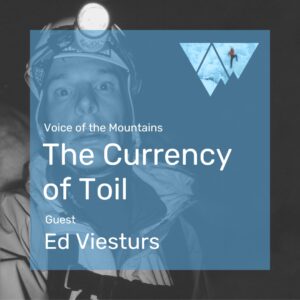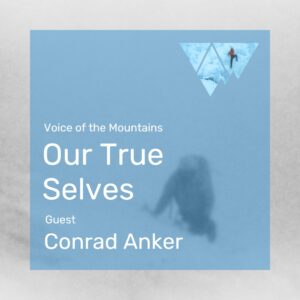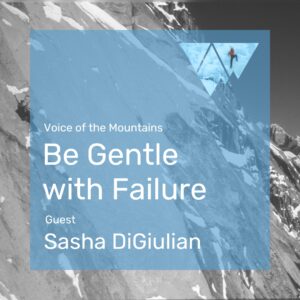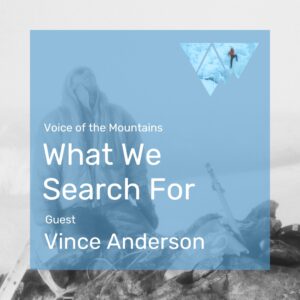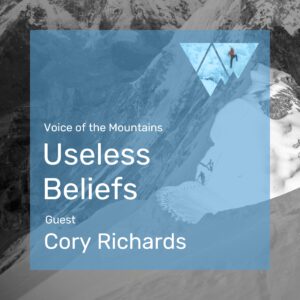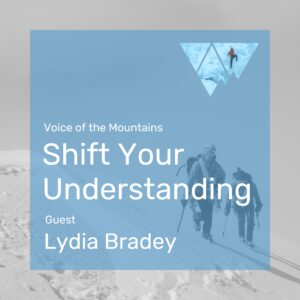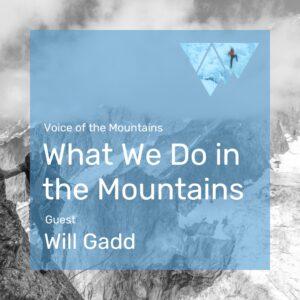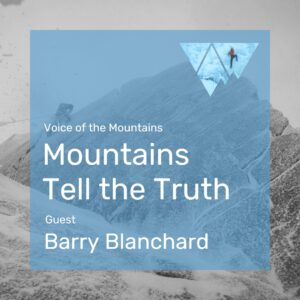Essay: Our True Selves
By Steve House
I once spent two summers trying to climb K7 alone. The mountain was a tool to know my true self. And I learned many things; though not every thing. Looking back now I see the lessons in people and organizations all around me; I recognize them as fear, joy, and agency.
For instance, I learned the difference between the pseudo-paralysis of being afraid and the heaviness of fear. Being afraid is the sharp inhale when you jump into the mountain lake. Fear is viscous cold water on your skin that begrudgingly parts as you swim towards your destination. Afraid is a shock. Fear is a weight, ever-present and part of the doing.
The second truth was the ever-presence of joy and laughter. In this case, laughter is a sharp inhale; joy is what remains and is the levity found in the absurdity of even the most dire of moments as well as the joy in watching a bee settling into the bloom of a flower.
Comforted by this knowledge of ever-present joy and ever-present fear helped me to manage and move and find agency in my fear of failure, no matter how severe, or trivial, that failure may be. Knowing full well that the pressure of failure felt the same in either case.
This was the third truth. The truth and the power of agency. Of trying. As on each attempt I chipped away at the intricacies of climbing a massive and steep mountain, alone. As I was not there for the grade or the ‘gram and it was definitely not about the mountain, which no one had heard of. I came to understand the most powerful lesson was the simplicity of trying absurdly hard things with no resources save for the knowledge in my head and a few simple tools. Fear, joy and the power to try were the partners I had as I finally gained that fiercely guarded summit.
At the most fundamental level, only two motives drive people to the limits of their potential. The first is that they want to be rewarded. They see reward as a prize and are drawn by its trappings: attention, status, power, money. Most people understand intuitively that this is a corrupt form of motivation, but it’s important to identify reward-based motivations specifically and understand why they are a problem.
There is an easy test. When people are motivated by reward, they will calculate the personal economics of uncomfortable and tedious tasks and responsibilities and often try to avoid them. If this person is in a leadership position, their charges will be without direction, guidance, or protection.
The second motivation is purpose. And purposes shift as subtly and as surely as sands shift among the dunes. The exact purpose may be wholly irrelevant precisely because the purpose-driven always have agency to be in the battle, in the struggle. Their reward is to be found in the heart of the toil. They have no time for recognition, and may even resent it. They’re not living to be seen. They’re living to do, to seek, to be measured in terms of strife met, cycles of iteration, and opportunities for improvement.
For Conrad Anker, his true self, and being a true leader are one and the same.
Conrad has been plenty recognized for his climbing. But his motives and his leadership have remained oddly invisible. Listen to our conversation and pay particular attention to how he speaks, not only what he speaks of. Listen when he says, “We climb better when trust is present, and the connection between partners is the very thing that elevates our climbing and ourselves.” When he talks about sponsorship, he says, “It’s not competition but mutual betterment.” How he’s open about his neurodivergent mind and calls ADH(D) his superpower, as it allows him to be hyper-situationally aware in the mountains. Or when he talks about his 20 years of service to the Khumbu Climbing School, he says, “It’s about giving the Sherpa people the same educational approach to climbing we had. That way, climbing is not just work, but a passion, making it safer and more fulfilling.”
Conrad knows agency, embodies joy, and shares his fears gladly as he helps the Nepali people learn climbing, as he parents his children, as he encourages his climbing partners.
When true leaders step into leadership, it is because they need to help other people. With a quiet strength as they protect and nurture other people, those people begin to organize behind their vision and purpose as instinctively and effortlessly as a wolf pack, rallying behind the alpha pair for a hunt. They do everything necessary to bring about something good for the people they serve. Rather than avoid sacrifice and suffering, they seek it; they know that these experiences are the places where the most is gained. Conrad Anker is a great climber, no doubt. But in today’s Voice of the Mountains, I want to bring you Conrad Anker, the great leader. A leader who knows himself, who teaches, who protects, who nurtures, and who leads not because he sought leadership himself, but because those who follow him are disciples and students.
LISTEN TO THE EPISODE:
Exploring the poetic soul of the mountains.
Voice of the Mountains explores the mental and emotional adventures found in discovering who we are and what we’re capable of. Here we engage in self-reflection and humility, and embrace the beauty and struggle of the alpine experience equally.


